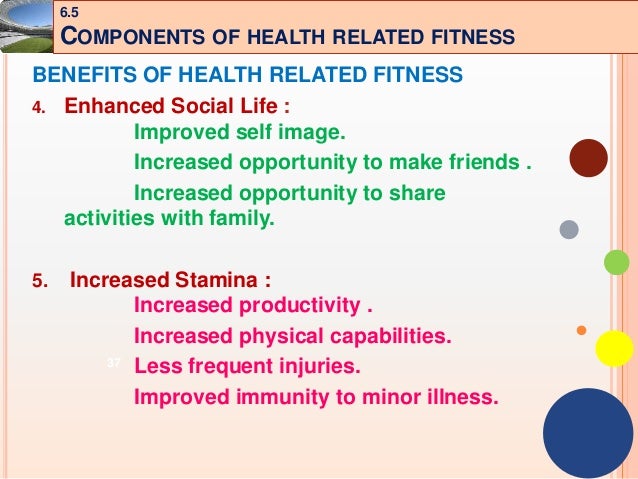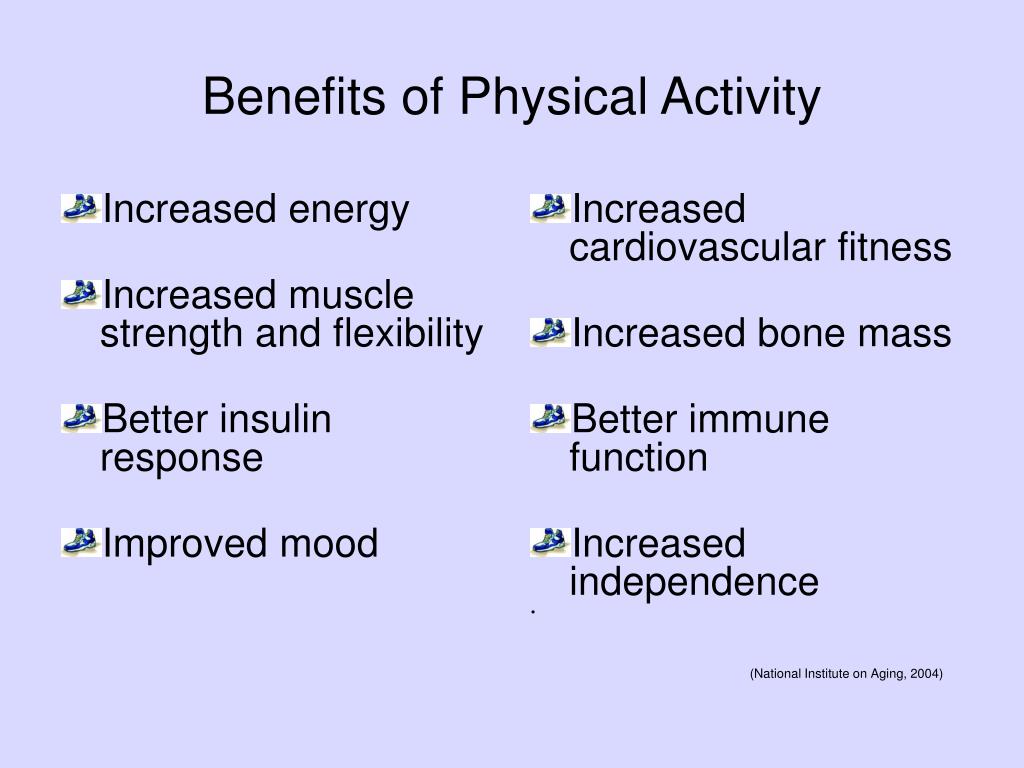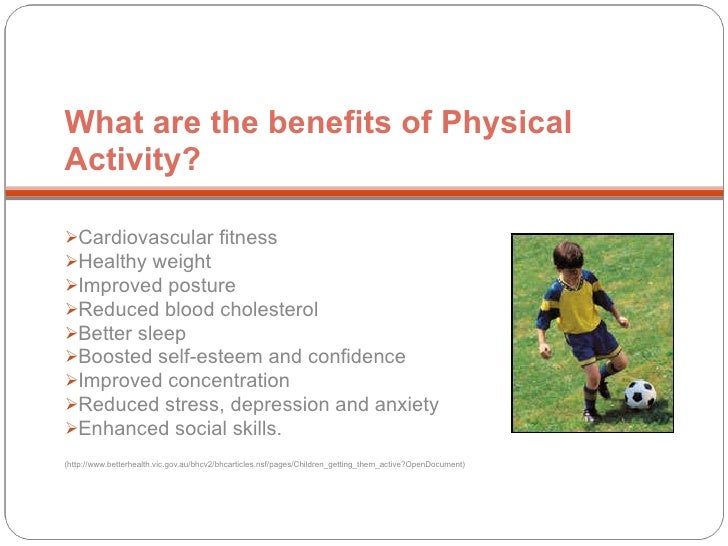


∘ Supplementation of phosphorus without calcium. ∘ Supplementation of calcium without phosphorus. ∘ Below 100 mg/60 mg calcium/phosphorus or equal to/above 100 mg/60 mg calcium/phosphorus per 100 mL milk.
#Long term benefits of physical activity full#
Therefore, an additional subgroup analysis was planned for infants receiving different amounts of calcium and phosphorus, along with full enteral feeds as follows. Calcium and phosphorus intake may affect an infant's ability to increase bone mineral content (Kuschel 2004).Given that the smallest infants are most vulnerable for developing osteopenia (Bishop 1999), a subgroup analysis was planned for infants with birth weight The primary objective was to assess whether physical activity programs in preterm infants improve bone mineralization and growth and reduce the risk of fracture.The secondary objectives included other potential benefits in terms of length of hospital stay, skeletal deformities and neurodevelopmental outcomes, and adverse events.Subgroup analysis: Physical activity programs combined with adequate nutrition might help to promote bone mineralization and growth. Increasing evidence suggests that staying active as an adult can even lower your risk of dementia in old age.Lack of physical stimulation may contribute to metabolic bone disease of preterm infants, resulting in poor bone mineralization and growth. Consistent exercise through childhood and adulthood keeps brains healthy. Creating healthy exercise habits when you’re young makes it easier to maintain those routines as you grow older. In turn, better sleep improves creativity and brain function.Įxercise is especially important for kids and young adultsĪs you can see, there are lots of benefits to being active. Children and young adults who were asked to exercise just a few times a week showed big improvements in their ability to remember what they read.īeing active gives you more energy during the day and helps you sleep better at night. Physical activity can improve your long-term and short-term memory. There are a number of mental abilities that are improved with regular exercise: On average, children and young adults who exercise tend to have better test scores in math and reading when compared to those who don’t. That’s right! Exercise has been shown to improve mental abilities. Regular exercise can also help you control your emotions when you do feel angry or upset. People who exercise tend to be happier and less stressed than those who don’t exercise. Not only is your brain dumping out feel-good chemicals, but exercise also helps your brain get rid of chemicals that make you feel stressed and anxious. When you exercise, your body releases chemicals such as dopamine (pronounced doh-pa-meen) and endorphins (en-door-fins) in your brain that make you feel happy. As a result, individual neuron health is important to overall brain health.Įxercise boosts your mood and reduces stress Neurons are the working building blocks of the brain. These nourishing proteins keep brain cells (also known as neurons) healthy, and promote the growth of new neurons. Exercise also induces the release of beneficial proteins in the brain.

As blood flow increases, your brain is exposed to more oxygen and nutrients. What is happening in the body and brain during exercise?Īs your heart rate increases during exercise, blood flow to the brain increases. A few other examples of exercise are: dancing, walking, biking, swimming, or throwing a Frisbee. If you don’t like sports or competition, that’s OK too! Exercise doesn’t only mean playing sports, it just means moving your body and being active. Being on a team can build self-confidence, and regular practice schedules are good for your health. One of the best ways to get exercise is to play sports. What counts as “regular exercise?”Īccording to experts, the recommended amount of exercise to keep your mind sharp is about an hour a day. Not only is exercise good for your muscles and bones, but it is also an important part of keeping your brain healthy too. Regular physical activity is an important part of a healthy lifestyle.


 0 kommentar(er)
0 kommentar(er)
